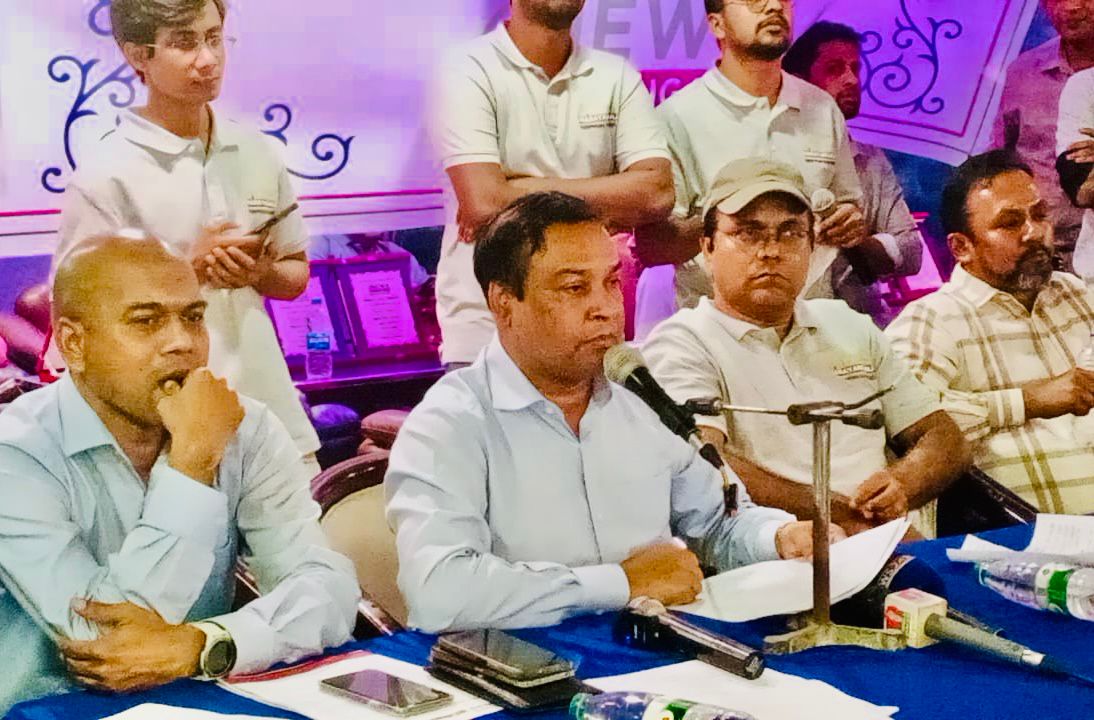News Flash

NARAYANGANJ, May 13, 2025 (BSS) - Bangladesh Federal Union of Journalists (BFUJ) Secretary General Kader Gani Chowdhury today said although 32 laws exist in the country to restrict the freedom of the press, there is no specific law to ensure the protection of journalists.
“Creating a safe and independent environment for journalists is essential so that they can report and collect news without fear or interference,” he told a civic gathering in Narayanganj, marking the founding anniversary of online news portal ‘News Narayanganj’.
Kader Gani Chowdhury, also Member Secretary of Bangladesh Sammilita Peshajibi Parishad (BSPP), said, “Journalists are the mirror of society, describing their role as the watchdogs of the nation. Every day, two suns rise — one in the sky and one in the form of news. The sun shows us the world, while journalism helps us understand it.”
He emphasized that journalists must remain vocal against injustice, irregularities, oppression and the deprivation of rights.
Despite threats and intimidation, they must work courageously and tirelessly, he said, adding, “They face enormous challenges and often operate under pressure from powerful quarters.”
Commenting on self-censorship, he said, “Due to the absence of state protection, many journalists are compelled to self-censor, fearing job loss, legal trouble, or physical harm. Investigative journalism is gradually disappearing in such an environment.”
Referring to the now-defunct Section 57 of the Digital Security Act, he said the clause was used to harass journalists, causing them to hesitate while reporting sensitive matters. “Even after knowing important facts, many remain silent, fearing retaliation,” he said.
Chowdhury called on the government to enact laws ensuring journalists' safety. “To uphold good governance and the welfare of the republic, the media must be allowed to function freely,” he said.
Highlighting the role of journalism in state-building, he said the media is often referred to as the fourth estate. “British parliamentarian Edmund Burke first used the term ‘Fourth Estate’ in 1787 in the House of Commons. It reflects the vital role of the press in shaping state policies and keeping governance transparent,” he added.
He cited the example of Kaler Kantho’s investigative reporting on former police official Benazir Ahmed, which spurred nationwide debate and prompted government action. “This shows that media exposure often triggers official responses that would not occur otherwise,” he said.
Concluding his remarks, Chowdhury said, “Journalists must not serve any party or personal interest. Their allegiance should be to the truth alone. Objective and fair reporting is the foundation of real journalism, and the state must step up to protect those who uphold it.”
Chaired by News Narayanganj editor Shahjan Shamim, it was also addressed by Additional Deputy Commissioner Alamgir Hossain, Mahmudur Rahman Sumon, former lawmaker Gias Uddin, Abul Kalam, Advocate Sakhawat Hossain, Morsalin Babla, Mostafizur Rahman Dipu Bhuiyan and Mahbub Alam Shah.